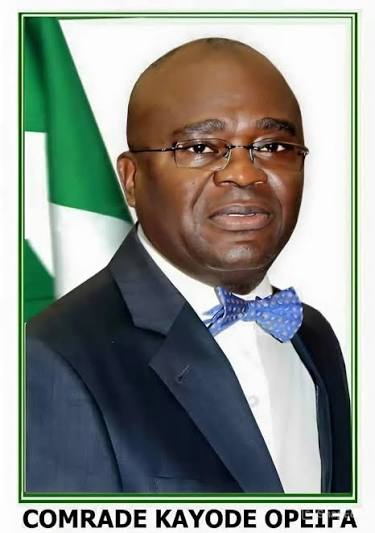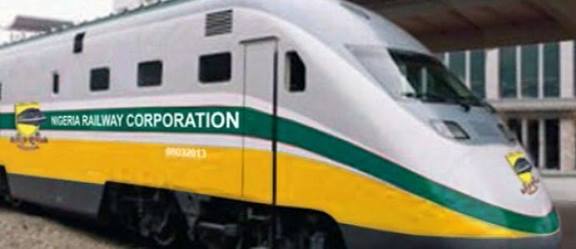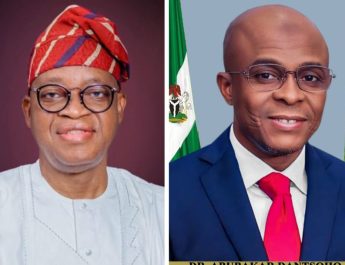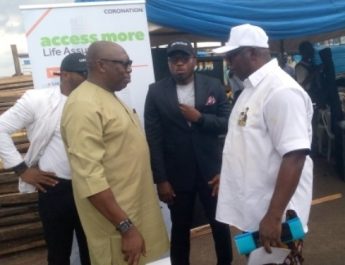The railway transport mode in Nigeria is bogged by tracks of broken promises
By David Oladimeji
It begins with a sound-the distant whistle of a train, slicing through the morning calm. For many Nigerians, that sound is a rare one. It echoes not just across empty stations, but across decades of broken promises and half-completed dreams.
For more than sixty years, Nigeria has promised to build a railway network that would unite its people, drive trade, and spark industrial growth. Yet, today, the country still moves mostly by road, its railway system fragmented, politicized, and perpetually “under construction.”
From the red earth of Enugu to the dry plains of Kano, old rail tracks lie rusting under weeds — relics of an era when trains were more reliable than roads. At stations once filled with vendors and passengers, only silence remains. The iron bones of progress have become monuments to neglect.

Successive governments have announced “railway revolutions,” but most of those revolutions never left the station. Projects start with fanfare-ministers in hard hats, flags waving, speeches of hope-and end in quiet abandonment. The Nigerian public has seen it too often to believe the rhetoric anymore.
“It’s always the same story,” says Dr. Musa Adetunji, a transport economist at the University of Ibadan. “New governments scrap old projects, rebrand them, and then start afresh. There’s no continuity, no discipline. That’s why we’re still here — stuck on the same track.”
The irony is that Nigeria once had one of Africa’s earliest and most extensive railway systems. The British built it, not for unity, but for convenience — to haul tin, cocoa, and groundnuts to the ports. When independence came, the dream was to reverse that colonial logic — to connect people instead of products. But that dream derailed along the way.
In the 1980s, the Nigerian Railway Corporation (NRC) was still a national pride. Families could travel from Lagos to Kano for a fraction of today’s airfare. Traders moved goods cheaply. Then came decades of neglect, corruption, and policy inconsistency — the twin killers of public infrastructure.
By the time democracy returned in 1999, the railway sector had collapsed almost entirely. Tracks were decayed, locomotives broken, and workers demoralized. Billions were announced for rehabilitation, but most of the money disappeared into bureaucratic potholes.
Every government since then — Obasanjo, Yar’Adua, Jonathan, Buhari, and now Tinubu — has declared railway transformation as a major agenda. Yet, like a train without fuel, the journey keeps stalling mid-route.
“We’ve become a nation of groundbreaking ceremonies,” says Engr. Florence Okorie, a retired NRC engineer. “We cut ribbons, take photos, and disappear. By the time the next government comes, the project site is a jungle again.”
China’s involvement offered a glimmer of hope. Through the Exim Bank, Nigeria secured massive loans to fund modern standard-gauge lines — Abuja–Kaduna, Lagos–Ibadan, and Warri–Itakpe. These projects showed progress, but also exposed imbalance. While some regions enjoyed new lines, others felt deliberately excluded.
Regional rivalry soon crept in. Politicians began lobbying for routes to pass through their constituencies. Projects turned into political trophies. Instead of a national network, Nigeria got a patchwork of disjointed lines — each with its own story, each serving a narrow interest.
“Rail development in Nigeria is not guided by logic; it’s guided by loyalty,” argues Prof. Nnenna Ibekwe, a public policy analyst. “The question is no longer what connects us, but who benefits politically.”
The economic impact of these missed opportunities is devastating. Without efficient railways, goods move by trucks, damaging roads and inflating costs. Farmers lose produce, manufacturers face high logistics bills, and consumers pay more for basic items.
In Benue, tomato farmer Yakubu Danladi shakes his head as he watches trucks leaving his farm.
“We lose one-third of our harvest to rot before reaching Lagos. If there were trains, we could feed the cities and still make profit.”
Security has also compounded the crisis. The 2022 terrorist attack on the Abuja–Kaduna train — where passengers were kidnapped and some killed — froze public confidence. Services halted for months, and ridership never fully recovered. Fear now travels faster than the trains.
“It was supposed to be our safest option,” recalls Amina Yusuf, a civil servant who used to commute weekly between Abuja and Kaduna. “Now, every time I hear the sound of a train, I remember the gunshots.”
Beneath all these challenges lies a deeper issue — corruption. Contracts are inflated, progress exaggerated, and funds vanish mid-project. Lawmakers hold hearings that lead nowhere. Audit reports gather dust. No one takes responsibility, and no one is punished.
“Our railways are victims of political greed,” says a senior ministry official who requested anonymity. “The system isn’t designed to succeed; it’s designed to feed people in power.”
While Nigeria dithers, smaller African countries are racing ahead. Ethiopia’s electrified Addis Ababa–Djibouti railway now drives its export economy. Egypt runs high-speed trains across the Nile. Even Kenya, with less revenue, has linked its coast to its capital. Nigeria, the supposed “giant,” still crawls.
Experts agree that what Nigeria lacks isn’t money, but vision. There is no long-term masterplan immune to politics — no binding transport law that compels continuity from one government to the next. Projects begin and end with political cycles, not with national goals.
“We need a 25-year rail masterplan backed by legislation,” insists Dr. Adetunji. “One that no administration can tamper with for selfish reasons. That’s the only way to end this endless motion without movement.”
Environmentalists also argue that expanding rail transport could ease Nigeria’s fuel consumption and carbon emissions. A single train can replace hundreds of trucks, cutting pollution and road damage. Yet, short-term politics keeps winning over long-term planning.
“Railway development is not just transport policy,” says Mrs. Ireti Ogunleye, a Lagos-based urban planner. “It’s economic justice. It’s about linking rural farmers to cities, connecting opportunities to people, and uniting a divided nation.”
For now, progress is piecemeal. Lagos has made headway with its urban metro line, showing what vision and consistency can achieve at state level. But at the national level, the story remains the same — bold promises, rusty tracks, and unending excuses.
As dusk falls at the abandoned railway station in Minna, the air feels heavy with nostalgia. Children play among overgrown grass. The rails shimmer faintly in the fading light — silent witnesses to decades of waste.
An old man sits on a wooden bench, his eyes tracing the distant horizon.
“When I was a young man,” he says softly, “you could travel by train from here to Kano or Lagos without worry. The sound of the train meant Nigeria was working.”
He pauses, his gaze steady and sad.
“Now, that sound is gone. What we hear instead are the promises — still coming, but never arriving.”




